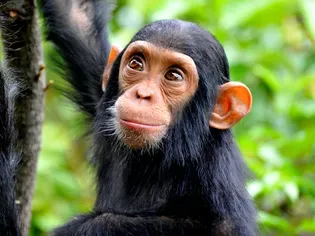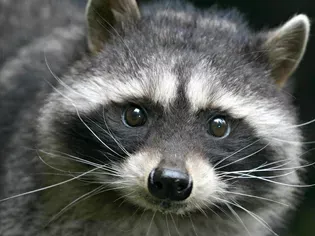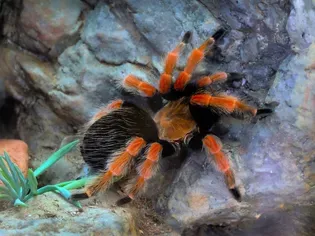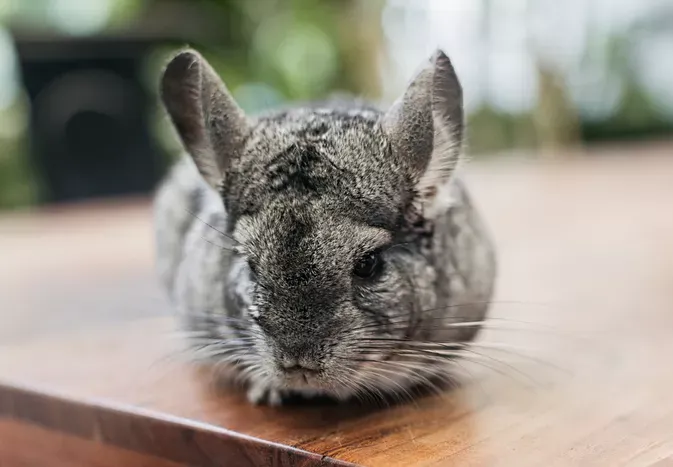The Best Diet for a Pet Raccoon
Updated on 04/26/24

Unveiling the Optimal Diet for Your Beloved Pet Raccoon: A Comprehensive Guide
Welcome, fellow raccoon enthusiasts, to this in-depth exploration of the ideal dietary regimen for our enigmatic and charming companions. Embarking on this culinary odyssey, we shall meticulously unravel the intricacies of a raccoon's nutritional needs, delving into the optimal balance of macronutrients, essential vitamins, and minerals.
As responsible pet owners, it is imperative that we provide our raccoons with a diet that not only nourishes their bodies but also caters to their unique digestive system and behavioral traits. Therefore, we must delve into the specificities of their nutritional requirements, understanding the delicate balance between meeting their energy demands and preventing obesity and other health concerns.
Macronutrient Balancing Act: Proteins, Carbohydrates, and Fats
1. Proteins: The Building Blocks of Raccoon Health
- Raccoons, as omnivores, require a substantial protein intake for maintaining muscle mass and supporting vital bodily functions.
- Aim for a diet providing approximately 25-30% protein content.
- Excellent protein sources include lean meats (chicken, turkey, fish), eggs, and certain insects.
2. Carbohydrates: Fueling Raccoon Activities
- Carbohydrates provide essential energy for raccoons' active lifestyles.
- Choose complex carbohydrates with a low glycemic index, such as whole grains (brown rice, oats), fruits (bananas, apples), and vegetables (carrots, celery).
- Avoid processed carbohydrates and sugary treats that can lead to weight gain and dental problems.
3. Fats: Essential for Brain and Body Function
- Fats play a crucial role in hormone production, brain development, and energy storage.
- Include healthy fats in your raccoon's diet, such as omega-3 fatty acids found in fish oil and flaxseed oil.
- Limit saturated and trans fats, which can contribute to obesity and cardiovascular issues.
Vitamin and Mineral Essentials: Vital Nutrients for Raccoon Well-being
1. Vitamins: Powerhouses for Immunity and Metabolism
- Vitamin A: Essential for eye health and immune function. Sources: carrots, sweet potatoes, spinach.
- Vitamin D: Important for bone development and calcium absorption. Sources: sunlight, fortified foods.
- Vitamin E: Protects cells from damage. Sources: nuts, seeds, leafy greens.
2. Minerals: Building Blocks for Strong Bones and Muscles
- Calcium: Essential for bone health. Sources: dairy products, leafy green vegetables.
- Phosphorus: Plays a crucial role in energy production and bone formation. Sources: meat, fish, eggs.
- Iron: Necessary for red blood cell production. Sources: red meat, liver, fortified cereals.
Sample Diet Plan: A Guide to Daily Raccoon Nutrition
- Breakfast:
- 1/2 cup cooked chicken or turkey
- 1/4 cup cooked brown rice
- 1/4 cup chopped carrots
- Lunch:
- 1/2 cup hard-boiled egg
- 1/4 cup apple slices
- 1/4 cup celery sticks
- Dinner:
- 1/2 cup fish with bones (e.g., salmon, sardines)
- 1/4 cup cooked oatmeal
- 1/4 cup chopped spinach
- Snacks:
- Fruit: banana, berries
- Vegetables: cucumber, bell pepper
- Nuts: walnuts, almonds
Additional Tips for a Healthy Raccoon Diet
- Freshwater Always Available: Provide your raccoon with constant access to clean, fresh water.
- Avoid Junk Food: Resist the temptation to feed your raccoon processed foods, sugary drinks, or table scraps, which can be harmful to their health.
- Cooked Foods Preferred: Raw meats and eggs can carry parasites and bacteria; opt for cooked options to ensure safety.
- Variety Is Key: Offer a diverse range of foods to meet your raccoon's nutritional needs and prevent boredom.
- Monitor Weight: Regularly check your raccoon's weight to ensure they maintain a healthy body condition.
By adhering to these dietary guidelines, you can provide your pet raccoon with a balanced and nutritious diet that will support their optimal health, vitality, and longevity. Remember that consulting with a qualified veterinarian is always recommended to address any specific dietary concerns or adjust the diet based on your raccoon's individual needs and preferences.
Explore More Pets

Exotic Pet Species
Should You Keep a Chimpanzee as a Pet?

Exotic Pet Species
Should You Keep a Raccoon as a Pet?

Exotic Pet Species
How to Care for a Pet Mexican Red-Knee Tarantula

Exotic Pet Species
12 Best Exotic Pets for Apartment Living

Exotic Pet Species
Best Foxes to Keep as Pets

Exotic Pet Species
Should You Keep a Northern Flying Squirrel as a Pet?

Exotic Pet Species
Should You Keep Stick Insect as a Pet?

Exotic Pet Species
Should You Keep a Big Cat as a Pet?